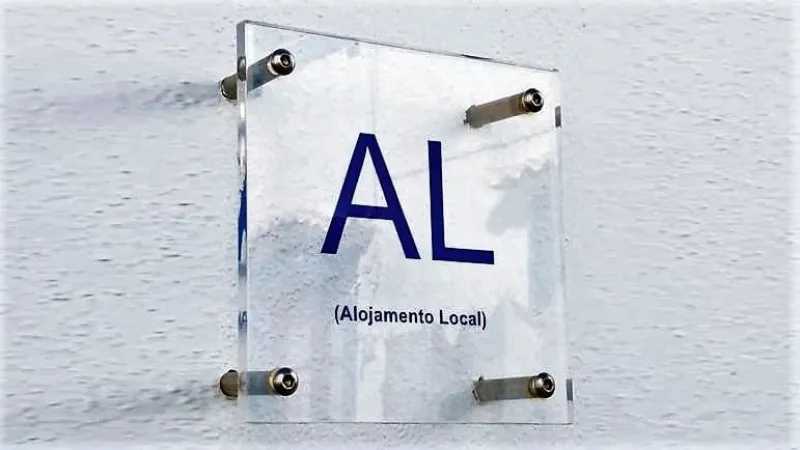Since October 2023, the so-called “Mais Habitação” law, introduced under the then-socialist government, has brought significant changes for local accommodation businesses in Portugal. These regulations have led to intense political and legal discussions. With the change of government, the centre-right coalition of the Democratic Alliance implemented further legal amendments at the end of 2024, which are now in effect.
Lawyer and advogado Dr. Alexander Rathenau – a recognized expert in Portuguese real estate law – explains the currently applicable regulations regarding local accommodation and answers the most frequently asked questions from owners, investors, and interested parties. Further information and legal classifications can be found on his website: www.anwalt-portugal.de
1. Which law applies to rental relationships?
Contracts concerning the lease or rental of immovable property are subject to the law of the state where the immovable property is located. Notwithstanding this, the rental or lease of immovable property for a maximum of six consecutive months for temporary private use is subject to the law of the state where the landlord has their habitual residence, provided the tenant is a natural person and has their habitual residence in the same state.
Example case: Renting a holiday apartment in Portugal
Mr. Müller, residing in Germany, owns a holiday apartment in Lisbon, Portugal. He regularly rents this apartment to tourists for stays of up to six months. The rental agreements are designed for a short period to allow him to use the apartment himself at a later date.
In one of these cases, Mr. Müller enters into a rental agreement with Ms. Schmidt, who also lives in Germany and wishes to rent the holiday apartment for three months. Since the period of six months is not exceeded and the rental agreement is solely for private use by Ms. Schmidt, this contract is not automatically subject to Portuguese law under EU regulations, but rather to German law, since both parties have their habitual residence in Germany.
However, if Mr. Müller were to rent the same apartment to Mr. Silva, who lives in Portugal, the rental relationship would be subject to Portuguese law, as the tenant does not have their habitual residence in the same state as the landlord and the property is located in Portugal.
Summary of the legal situation:
1. Rent for max. six months for temporary private use: Subject to the law of the state of the landlord (here Germany), provided both parties have their habitual residence in that state.
2. Rent for more than six months or for commercial use: Subject to the law of the state where the property is located (here Portugal), regardless of the residence of the contractual parties.
This case illustrates how the choice of law changes depending on the duration of the lease and the residence of the parties and why landlords should carefully examine which law applies to their rental contract when dealing with international rental interest.
Even if the rental contract in the aforementioned case is subject to German law, the landlord is still obliged to fulfil Portuguese tax obligations and requirements for operating a local accommodation.
It should be noted:
1. Tax obligations in Portugal: The income from renting a property in Portugal is generally subject to Portuguese income tax, even if the rental contract is governed by German law. Therefore, Mr. Müller must declare the rental income in Portugal and pay the corresponding taxes.
2. Local accommodation registration: As Mr. Müller regularly rents out his apartment short-term to tourists, this form of rental falls under the category of local accommodation (AL). He is required to register the holiday apartment with the municipality as an AL business and comply with all relevant requirements, such as equipping the apartment with emergency plans, fire extinguishers, and other safety-related facilities.
In summary: The applicability of German rental law does not mean that one can evade tax and administrative obligations in Portugal.
2. When does a local accommodation business exist?
A local accommodation (AL) business exists when a person or company offers services for short-term accommodation. This is primarily presumed when a property or a part of it is advertised as accommodation for tourists or as temporary accommodation through travel agencies or online platforms. Additionally, a property is considered a local accommodation business when it is furnished and equipped and offers additional services such as cleaning for stays under 30 days. The presumption that it is a local accommodation business can be disproven by evidence, such as the presentation of a classic rental contract that is officially registered with the tax authority and substantiates a permanent rental. Specifically for hostels as a subcategory of guesthouses, approval from the homeowners' association is required if the hostel is located in a building that is subject to condominium ownership. In municipalities with more than 1,000 registered local accommodation businesses, the city assembly must decide within a year whether to adopt regulations for the operation, which may also appoint a local accommodation officer to mediate conflicts. This officer is responsible for handling complaints, providing recommendations, and introducing guidelines for good practice.
3. What types of local accommodation businesses are there?
There are four categories of housing: house (moradia), room (quartos), apartment (apartamento), and guesthouse (estabelecimento de hospedagem; possibly hostel). The category “house” includes single-family homes. The “room” category assumes that the landlord rents rooms of their primary residence (tax residence) with a maximum of three rooms available for rent in this category. An “apartment” exists when multiple living units are available that can be used independently. A “guesthouse” is present when multiple bedrooms are rented, each located in independently usable units. In the mentioned categories “guesthouse” and “apartments”, it does not matter whether legal title has been established over ownership. Guesthouses use the term hostel when predominantly dormitories are offered.
To be continued
© Dr. Alexander Rathenau
Source: http://www.anwalt-portugal.de



